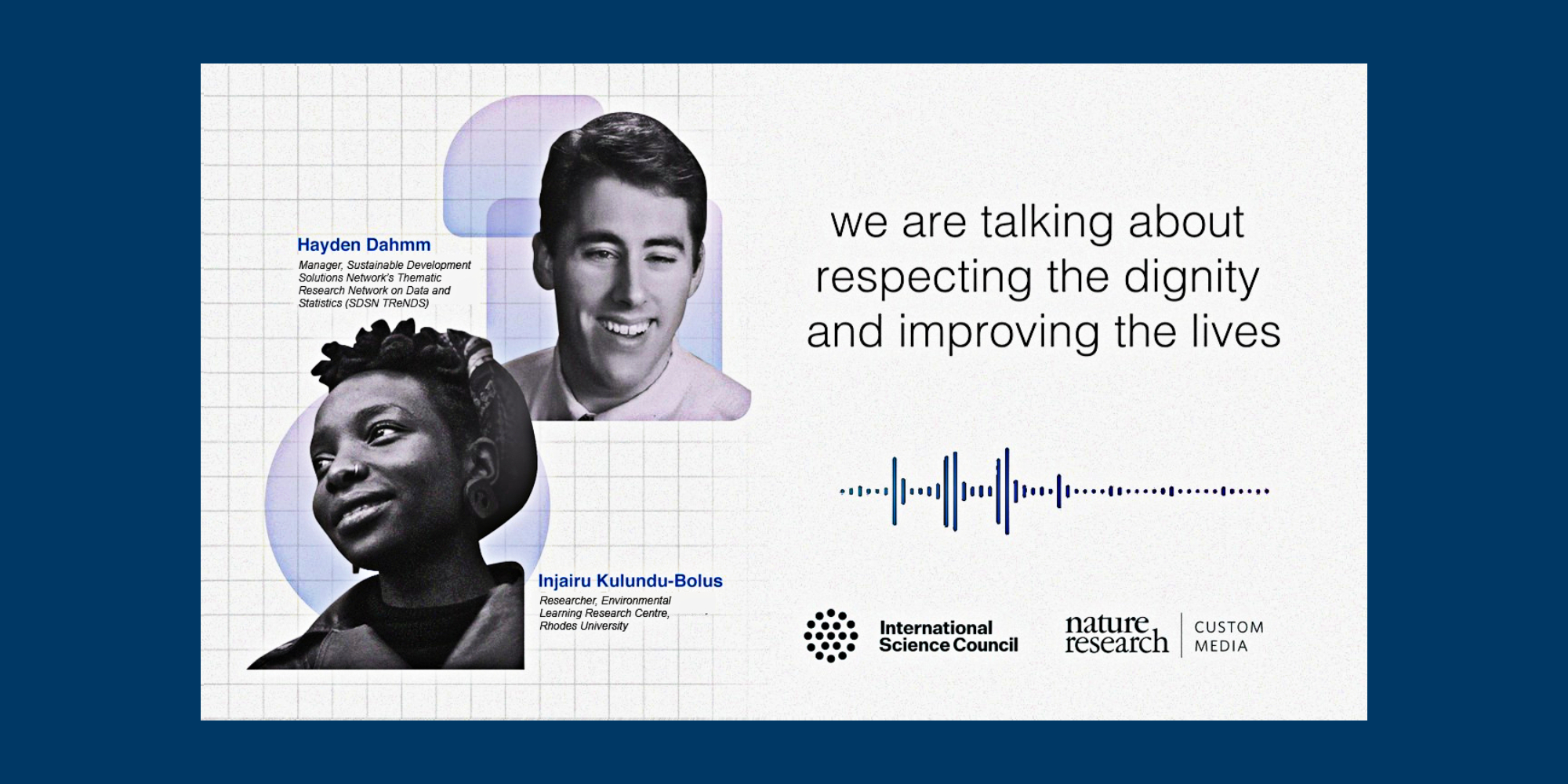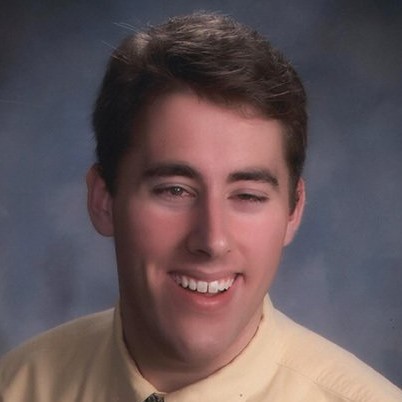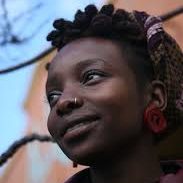
This podcast looks at democratizing knowledge and tools for a more sustainable future, one that leaves no-one behind. Injairu Kulundu-Bolus, who is part of the Transformations to Sustainability programme community, talks about her work in decolonial youth futures, the ability of music to connect us, and the power of allowing young people to lead. And Hayden Dahmm discusses the use of data to inform sustainable development, as well as the importance of learning from the perspectives of communities.
Listen to the podcast and find the full transcript below:
Transcript
Hayden Dahmm: Core to the Sustainable Development Goals of the United Nations is this notion of leaving no one behind. We have to make sure that the benefits are being extended to all sorts of groups of persons, many of whom may have historically been marginalised.
Injairu Kulundu-Bolus: It feels like it’s time. It’s time for us to unearth different metaphors, different archives of knowledge, and to find nourishment in that.
Marnie Chesterton: Welcome to this podcast series from the International Science Council, where we’re exploring diversity in science. I’m Marnie Chesterton, and this time, we’re looking at democratizing knowledge and tools for a more sustainable future.
Identifying pathways to sustainable equitable development is a major focus of the ISC’s work. In 2015, the UN decided on seventeen Sustainable Development Goals, a blueprint for creating a better planet for everyone. These included eliminating poverty and hunger, reducing inequality, and taking action on climate change. Meeting these goals will depend on access to tools, knowledge and data, and ensuring the voices of the vulnerable are heard and championed. In this episode, we’ll hear from two researchers working towards more sustainable futures.
Injairu Kulundu-Bolus: My name is Injairu Kulundu-Bolus. I am based in Cape Town, South Africa and also the Eastern Cape South Africa and I am part of the Environmental Learning Research Centre at Rhodes University.
Marnie Chesterton: Injairu is part of a network supported by the ISC’s Transformations to Sustainability Programme. This supports research on the complex social transformations needed to address problems of global environmental change.
Injairu Kulundu-Bolus: My research focuses on decolonial youth futures and Africa. My research is about democratising knowledge. And it’s about inviting young people in particular to start to expand and grow the particular trajectories that they feel they have reason to value. I think the research comes out of skepticism and maybe even a little bit of jadedness with some forms of youth development that try to contain what young people believe and try to almost inculcate them into being good citizens, when often there’s such huge contradictions they’re experiencing and navigating in incredible ways in their contexts. So what would happen if we could allow the space for these incredible young people to lead us?
Marnie Chesterton: In her PhD, it was Injairu’s experience as an artist and a musician that gave her a new way of connecting with young people.
Injairu Kulundu-Bolus: I tried to, at a particular point, write a paper about what I was hearing. And in sharing that paper back to the young people I was co-conspiring with, I realised that we’d lost the sense of engagement, and we’d lost the freedom and we’d lost, we’d lost some vital energy. And it really came back to me as a researcher to think about a different way to echo that back. And in this I used song, I wrote songs in response, while songs that really were able to hold what it was that I heard, it moved beyond the rational. And it was able to speak of what somebody was longing for, what they’re frustrated with, what they had the strength to do, and what they were hoping for in one breath, because you had such a deeper palette of colours to play with and expressing that back. The gesture of song is an honouring one for someone to sing back to you. It’s not, it’s not the critique, or an analysis. And one of the participants said to me, it was interesting to feel seen and not looked at.
Marnie Chesterton: Creating an environment in which young people felt seen, rather than looked at or examined, allowed for deeper conversations about social transformation. And the kind of changes they wanted to see.
Injairu Kulundu-Bolus: A lot of our discourse in youth development doesn’t give us much space for young people to articulate for themselves what they feel a need. One of the things that I often notice is that when we get into space together, there is a really strong culture of debate. And, you know, in that kind of space, whoever’s got whatever you call articulateness or who’s loudness and more vociferous often wins, but it was really important to foster a space of a different kinds of dialogue and to use art based methodologies to deepen that, and, and for me, I think that the whole aspect of democratising research and diversity is getting to the heart of that. Diversity means to me that the knowledge a grandmother holds is taken wholeheartedly as it is. The knowledge that young people hold is taken wholeheartedly as it is. It’s a space that seeks to cut through all of this, sometimes quite dense translation process, an abstraction process that constitutes some people as noise and others as not knowing. And for me, diversity in terms of science has to account for the wasted knowledge that we have not been able to work with and push forward in meaningful ways.
Marnie Chesterton: The Transformations to Sustainability Programme supports sustainability research led by social scientists, that’s focused on finding solutions. Crucially, the work involves all relevant groups at all stages of the research process. It’s based on the premise that environmental and social sustainability will never be achieved without profound social change, as well as knowledge and data from many sources.
Hayden Dahmm: The Sustainable Development Goals, which were agreed upon by 193 countries back in 2015, come with a whole set of measurement requirements. And so that requires huge amounts of data and statistics.
Marnie Chesterton: This is Hayden Dahmm, who’s a Manager with the Sustainable Development Solutions Network. Hayden works within the Thematic Research Network on data and statistics, or trends.
Hayden Dahmm: I find it interesting just how many issues can be better explored and understood through modern data solutions. But also find it almost troubling, really how much we still don’t know, out of the Sustainable Development Goals indicator lists are some 90 plus indicators that deal with the environment. And for over two thirds of those environmental indicators. We do not have enough data to monitor our progress at a global level.
Marnie Chesterton: Hayden recently collaborated with the ISC on a webinar about gridded population data.
Hayden Dahmm: Gridded population restructures all that data, according to squares laid out around the face of the Earth, and tries to estimate how many people are in each of those individual squares. And then you can have more complicated versions where you actually bring in satellite imagery and other forms of data. It’s not about looking at where a specific individual is based, but how people might be clustered around, say, infrastructure? Or do they have access to basic services, things like this. And one of the most practical applications probably is using population data for disaster response.
Marnie Chesterton: With less than 10 years to go to meet the Sustainable Development Goals. access to data like this can really transform our understanding of what’s happening on the ground at a local level.
Hayden Dahmm: Data is a form of knowledge, and therefore it’s a form of power, really. It’s important for us to consider how do we make sure that we are advancing a form of sustainable development in a way that is genuinely inclusive, rather than simply having this new form of power, become concentrated in the hands of those who are already powerful, more generally, it’s not good enough to just come in with a solution that you think might work, it really needs to be designed collaboratively, and needs to actually address the genuine needs of the community that you want to benefit.
Marnie Chesterton: The importance of looking at the genuine needs of a community is something that has particular resonance for Hayden. Hayden is blind, and has worked collaboratively with colleagues and teachers to find practical solutions for accessing tools.
Hayden Dahmm: Doing engineering and studying as a blind student, there definitely were challenges to overcome. There were diagrams I couldn’t see, equations that couldn’t read. And you know, figuring that out was sometimes a struggle, but I was incredibly lucky that I had a supportive community, the professors who worked hard to find solutions. It definitely took extra hard work for me but I could not have done it without this wider support and together, we would create different tools, we made these three dimensional, 3d printed diagrams of electrical circuits, we made a software that allowed me to plot out an audio graph of data that I might have been analysing, like, I’ve always appreciate pointing out to people, no one can actually see an atom. So not being able to look at a diagram of an atom doesn’t necessarily limit my ability to understand what it is, it’s just that we’ve often chosen to represent things in a visual way out of convenience. But that doesn’t mean that they can’t be understood in a different way. If you apply a certain level of creativity, and you’re also part of a supportive community. There are great tools that can be found,
Marnie Chesterton: Hayden is sometimes contacted by people designing such tools. For this process to be successful, it has to include the perspective of the people who are going to end up using the product.
Hayden Dahmm: Oftentimes, sighted people who come up with a solution that they find to be possibly a perfect candidate for a blind person don’t necessarily understand what a blind person wants or needs, and simply blindfolding themselves and giving it a test run doesn’t give them all the information that they might require. And so it’s really critical to not just trying to put yourself in the shoes of your target audience, but really incorporate them in the process. And relatedly I think sometimes focusing strictly on the technical might cause us to overlook the other aspects of solutions that are required as well. There’s a lot of interest around installing beacons and train stations and having highly technical app based ways of allowing the blind to navigate. But sometimes the best solution might just be to have a person to show you the way.
Marnie Chesterton: Building on that, Hayden has seen how the data on the Sustainable Development Goals can inform honest conversations about how disability intersects with goals such as reducing poverty for all.
Hayden Dahmm: So there’s some real progress being made in our ability to measure in a meaningful way, the size of the population that’s disabled, poverty and disability certainly are intersecting issues that if you are poor, you’re more likely to have disability complications. And likewise, if you’re disabled, you’re more likely to experience poverty. And so having data on this is an important first step to actually addressing some of these underlying issues, making sure that people with disabilities are able to be shown the respect that they deserve and have a chance of leading a life of dignity. It’d be wrong to think that simply having the data will solve these problems. But it’s an important first step to having an honest conversation that goes beyond basic anecdotes and allows us to see things at a population level. Some one billion people around the world or 15% of the total population, experience some sort of disability. And so when we talk about disability, inclusion and access, we are talking about respecting the dignity and improving the lives of a sizable portion of humanity. It’s not about generosity and charity. Here, it’s about realising certain goals for all people,
Marnie Chesterton: In order to realise the overarching goal of the United Nations 2030 agenda, to leave no one behind. Access to scientific knowledge, data, tools, and infrastructure is fundamental, and they need to exist within spaces that are open to diverse experiences. Only then can we truly hope to build a more sustainable, equitable and resilient future for everyone.
That’s it for this episode. More information about the projects mentioned in this podcast is available online at council.science. Next week, in the final episode of this series on diversity, we’ll be considering how to combat systemic racism in science. In the past year, the issue of systemic racism in society and science has hit the headlines worldwide. We’ll be hearing about why the ISC is taking a public stand on this topic. Shirley Malcolm talk about the changes she’s seen in the decades she’s been working to challenge racism in research settings, and discuss what’s worked and what still needs to change. We’ll also be hearing from Brittany Kamai about why we need to keep showing up and continuing to have these conversations.

Hayden Dahmm
Hayden Dahmm is a manager with the Thematic Research Network on Data and Statistics. His work involves researching ways that data is being used to advance sustainable development, as well as the types of investments needed to strengthen modern statistical systems. Additionally, he supports the development of the United States Cities SDG Index. Hayden graduated from Swarthmore College in 2015 with a BS in Environmental Engineering. He continued as a Marshall Scholar in the UK, receiving an MSc in Environmental Policy and Regulation from Imperial College London and an MSc in Environmental Policy and Regulation from the London School of Economics.
Hear from Hayden in the webinar Accounting for Everyone: Using Gridded Population Data For Sustainable Development and read an interview with him here.

Injairu Kulundu-Bolus
Injairu Kulundu is part of the Environmental Learning Research Centre at Rhodes University. She has recently completed a PhD in transgressive learning as decolonial praxis amongst change drivers in Africa.
An interview with Injairu is available on the Transformations to Sustainability website.
The ISC initiated this podcast series to further deepen discussions on broadening inclusion and access in scientific workplaces and science organizations, as part of our commitment to making science equitable and inclusive. The series highlights work being undertaken through different ISC programmes, projects and networks, and particularly ongoing initiatives on Combating systemic racism and other forms of discrimination, and on Gender equality in science. Catch up on all the episodes here.
You can find out more about the Transformations to Sustainability programme which is mentioned in this episode here.
If a specific topic covered in these podcasts raises a concern for you, please contact [email protected] or your equality officer at your workplace. It is important that all members of our community contribute to a safe and positive workplace atmosphere as we explore the issues around diversity in science. It is the ISC’s hope that the topics covered in these podcasts contribute to making the positive changes we need in our science systems that reflect, celebrate, and empower all scientists in order to reach their full potential, and ultimately, contribute to the vision of the Council as science as a global public good.